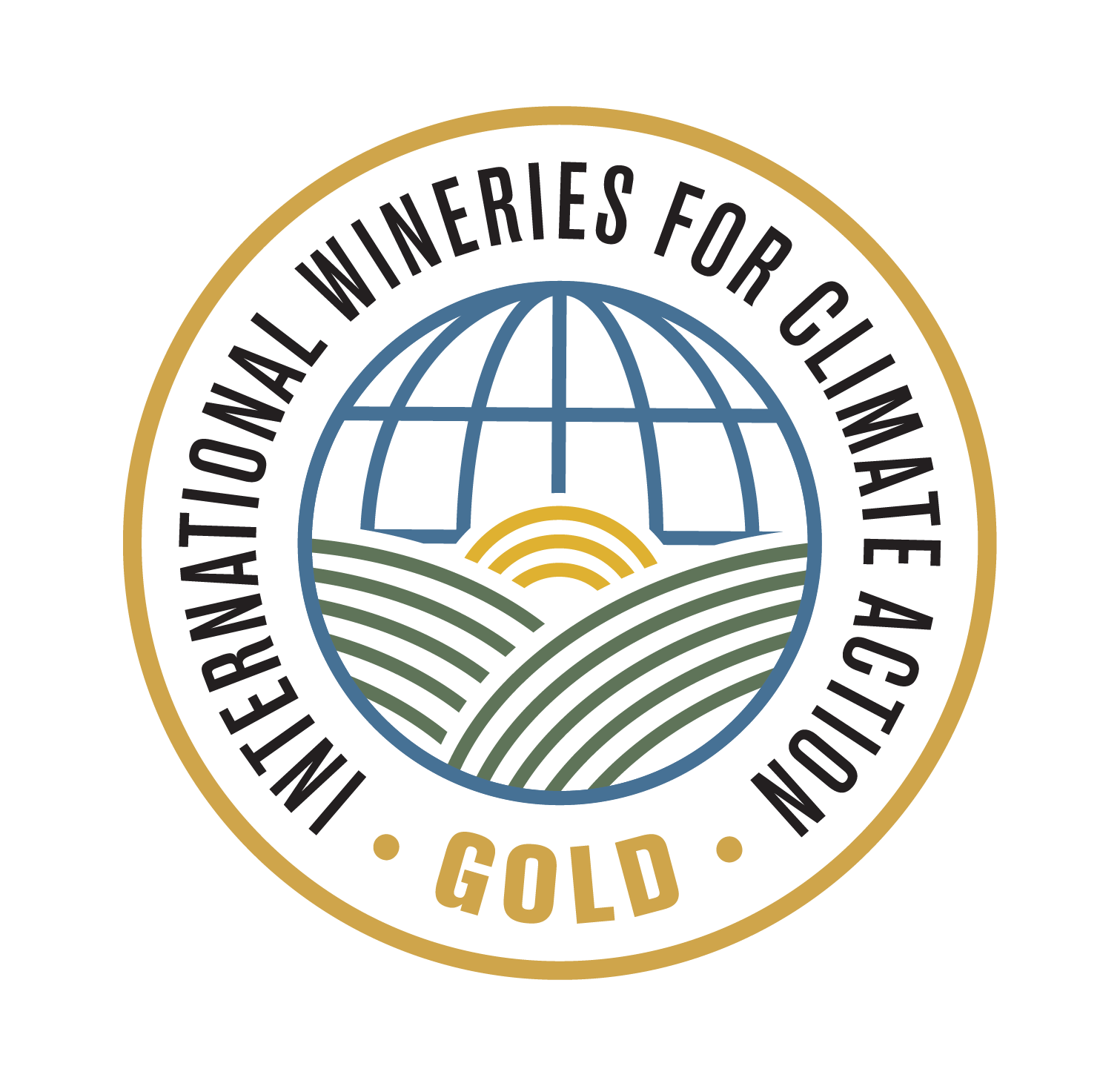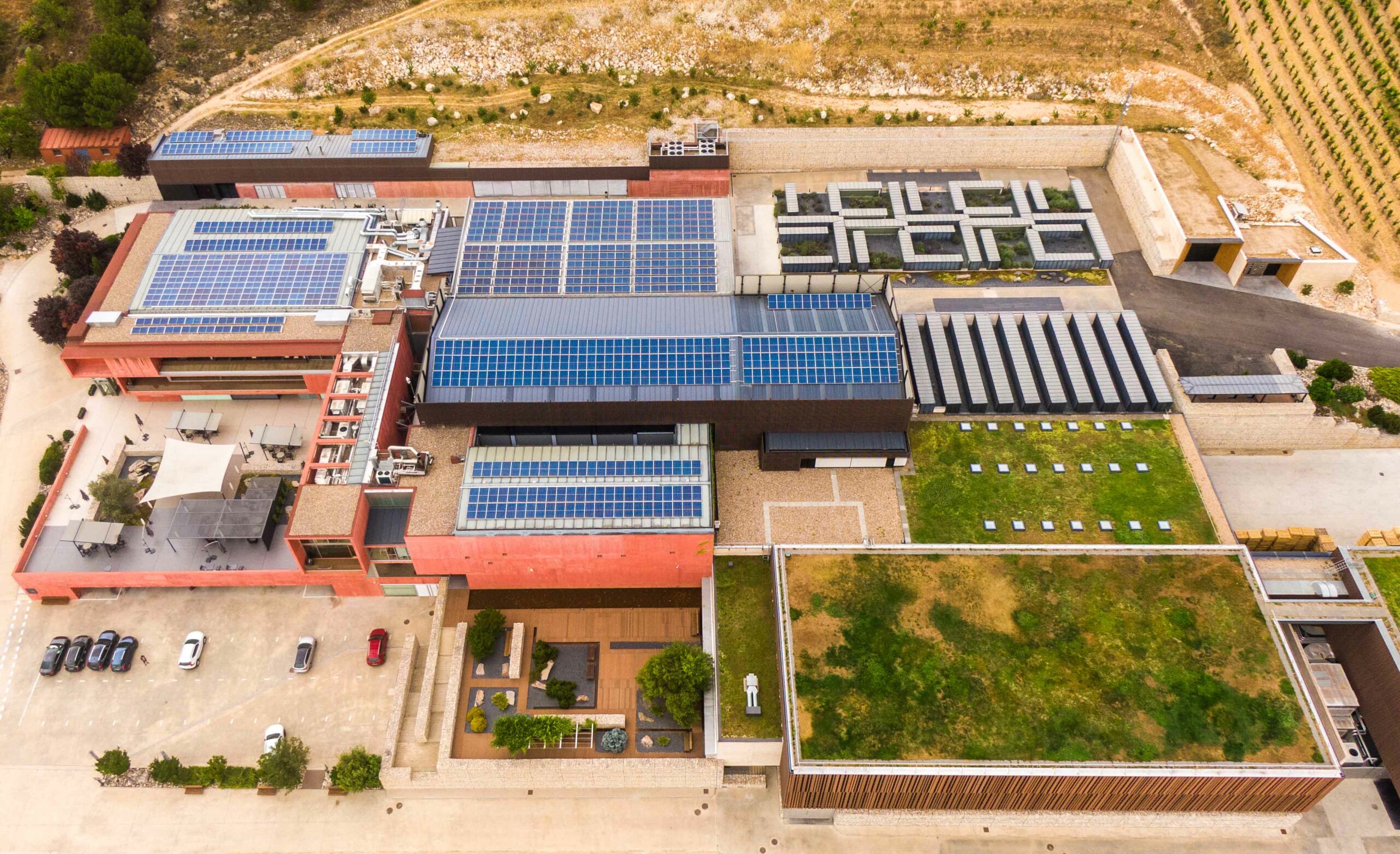At Alma, we are determined and honest about our origins. We want to preserve the winemaking heritage of each project, of each environment, of its culture and of the people who make it possible. We seek to express the uniqueness and singularity of each landscape in which we work, we claim its protagonism from a sustainable approach, giving back what we take from each terroir with the utmost respect. This philosophy that we maintain to protect an exceptional legacy leads us to take different actions as a result of our commitment to the fight against climate change.
In March 2020, Alma joined the International Wineries for Climate Action association, a collaborative working group that brings together wineries from around the world committed to the environment and determined to adopt a scientific approach to reduce greenhouse gas emissions in the wine industry.

Since our beginning as partners we have been progressing in different certifications, first achieving the SILVER category, to finally achieve in 2022 the GOLD seal, the highest distinction to which one can aspire within this organization and which we have just renewed in 2023.
One of the achievements implied by this certificate is our commitment to the generation of renewable energy in our own facilities. In the last year, 25% of the energy consumed in the different viticultural projects comes from the implementation of our own renewable sources: photovoltaic solar panels, biomass boilers, geothermal and aerothermal energy.
In addition, as part of our commitment to climate action, we have also achieved a 10% reduction in greenhouse gas emissions per liter of wine since our base year as proof of our ongoing proactive commitment.
Likewise, at Alma we calculate our Carbon Footprint according to ISO 14064 methodology by completing a GHG emissions inventory taking into account scopes 1, 2 and 3 in our wineries of Pago de Carraovejas, Ossian Vides y Vinos, Milsetentayseis, Viña Meín – Emilio Rojo and Marañones, which is verified by third parties.
Sustainable development
Climate change will condition the activity of our sector in the coming years, posing a direct threat to us. Extreme events, such as droughts and forest fires, are becoming increasingly frequent, posing a danger to crops (and to the companies themselves). This is why we have started to act as a company that is positively involved with the climate.
Our objective within this association is to share best practices aimed at mitigating the effects of climate change on vineyard and winery activity, in order to be able to work together to decarbonize the global wine sector by implementing direct solutions that avoid the acquisition of carbon offset credits.
Thus, we have implemented some measures such as the purchase of electricity with guarantees of origin from 100% renewable sources, thus reducing scope 2 emissions to 0.
We are also participating in a circular economy R+D+i project based on the use of pruning waste (vine shoots) to produce paper pulp for the manufacture of boxes and wine bottle labels. In this way, we minimize the waste generated in the vineyard during the pruning season, avoiding its burning, as well as the CO2e emissions associated with this process.
Recently, we have begun to work on sustainable water management through an innovation project with which we intend to contribute to the digitalization of water processes in the wine industry, in order to improve efficiency in the use of this resource.
These initiatives are complemented by other actions that we have been carrying out since Alma, such as the implementation of a CO2 absorption project through the planting of native species in our estate, with which we have managed to offset the emission of 13 t CO2e since 2021.
Likewise, as part of IWCA, we are also adhered to the UN’s global Race to Zero campaign, as our ultimate goal is to become Net Zero by 2050 through responsible and sustainable growth.
Small efforts that allow us to minimize our footprint on the environment and leave a legacy of natural heritage for future generations to inherit.




